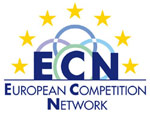European co-operation
The Icelandic Competition Authority participates in co-operation based on the EEA agreement and in the co-operation of the European Competition Authorities

Co-operation based on the EEA Agreement:
Meetings of the EU Competition Advisory Committee and EU Mergers Advisory Committees, where the Icelandic Competition Authority is entitled to be present and express its views, are organised by the EU Commission. Similar meetings are held by the ESA advisory committees, where the Competition Authority is a full member.
–The Competition Authority participates in co-operation organised by the European Competition Network (ECN), which consists in co-operation between Competition Authorities of EU and EFTA member states, ESA, and the European Commission. The purpose of this co-operation is to review specific competition issues under discussion at any time within the competition authorities of the EU, in addition to general competition policy work. For this purpose various working groups have been established to address specific aspects of competition. These include a working group on abuse of dominant position, a working group on mergers, a working group on energy matters and a working group on the telecommunications market.
–The Competition Authority participates in meetings of the EFTA working group on competition matters. This group reviews all new Community legislation on competition matters and assesses whether it has EEA relevance or not and, if so, whether new legislation needs to be adapted to the EEA Agreement (www.efta.int).
–Directors of competition authorities are summoned to a meeting once a year by the EU Commission. The Icelandic Competition Authority has attended these meetings.
Co-operation between the European competition authorities.
This involves informal co-operation which includes reviews of the implementation of competition rules and policymaking. Separate working groups have been formed for the purpose of discussing individual markets or specific competition matters, including working groups on issues such as mergers, the energy sector, the media, leniency rules, etc.